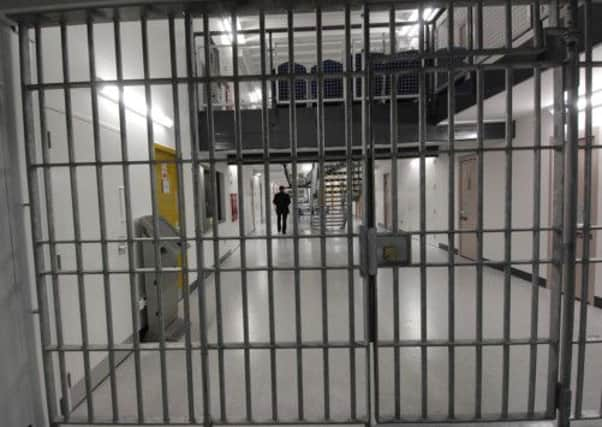Criminal reconviction rate at 14-year low


The reconviction rate fell from 30.5% for 2009-10 to 28.4% for 2010-11, the lowest since 1997-98, a Scottish Government report shows.
Frequency of reconvictions, which is the average for every 100 offenders in a year, fell by 10% over the same period, from 55.6 to 50.2. It has fallen by just over a fifth in the past nine years, from 63.9 per 100 for the 2002-03 cohort.
Advertisement
Hide AdAdvertisement
Hide AdThe report also shows a marked fall in the one-year reconviction rate for under-21s since 1997-98, down from 42.4% to 34.1%, the lowest ever recorded.
People who commit crimes of dishonesty had the highest reconviction frequency rate, at 91.7 in 2010-11, while those who commit sexual crimes have the lowest, at 15.7.
Justice Secretary Kenny MacAskill said: “The marked fall in reconvictions among all groups, but particularly people under 21, is testament to work done by our police, courts and other justice partners across Scotland to get offenders back onto the straight and narrow and stop them from committing further crimes upon release.”
Dangerous
The reconviction rate for people jailed for three months or less was 59.8%, compared with 31.6% for those given a community sentence, according to the report.
“Prison is and always will be the right place for serious and dangerous offenders. But what all the evidence shows, and what today’s statistics reinforce, is that sending low-level offenders out to pay back the community through manual labour, backed by work to address the underlying issues which fuel the crime, is far more effective,” Mr MacAskill said.
“Today’s statistics build on the strong progress being made in Scotland’s justice system, with recorded crime at a 39-year low, knife crime down, and a thousand extra officers protecting our communities, and serious criminals now being punished through the longest prison sentences in a decade.
“It is encouraging to see, but there will be no let-up in our efforts to reduce crime even further.
“In April this year we announced almost £7.7 million funding to establish a national network of mentoring schemes to tackle Scotland’s reoffending rates. This funding, which will be invested over the next two years, is being targeted towards prolific male offenders and women who are at risk of reoffending, ultimately working to further reduce reoffending levels and build an even safer Scotland for the future.”
Advertisement
Hide AdAdvertisement
Hide AdThe figures relate to people released from a custodial sentence or who received a non-custodial sentence in 2010-11.
Conservative justice spokeswoman Margaret Mitchell highlighted figures in the report showing a reconviction rate of 64.8% for those sentenced to a drug treatment and testing order (DTTO) in 2010-11.
Expense
“The SNP complacency on these reoffending rates comes as cold comfort to the thousands of people every year who fall victim to criminals well-known to authorities,” she said.
“Given two-thirds of those given DTTOs reoffend within a year means this disposal is in danger of becoming nothing more than a mechanism for avoiding a custodial sentence.
“Clearly it is totally unacceptable that so many offenders issued with DTTOs are reappearing in the dock over and over again.
“This not only represents a complete failure in the Scottish Government’s policy to tackle substance abuse but also comes at tremendous expense to the public purse, as well as causing misery in communities across Scotland.”
Labour MSP Graeme Pearson said: “Any reduction in reoffending is welcome but attention and focus is needed to ensure that prisoners are given meaningful activity and that efforts to further reduce reoffending are properly co-ordinated and planned.
“The statistics show that reoffending amongst over-25s has either increased, or remained largely static. We know that prisoners are often left in their cells watching TV rather than getting the skills and education they need to improve their lives.
Advertisement
Hide AdAdvertisement
Hide Ad“We also know that tackling reoffending remains patchy across Scotland and these figures reflect that. So while there has been progress, the Scottish Government should explain clearly and plainly quite how any reduction has been achieved.”